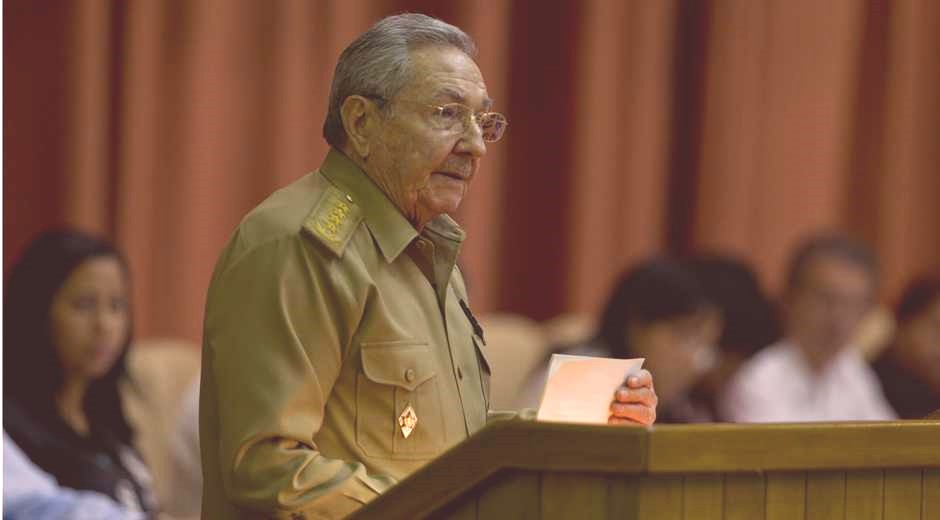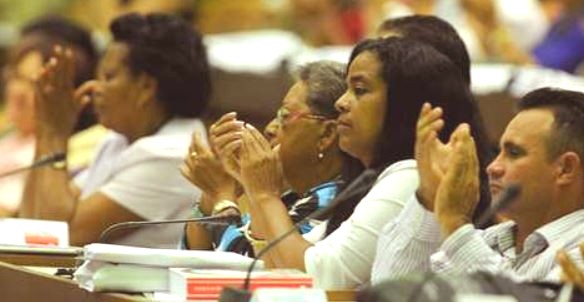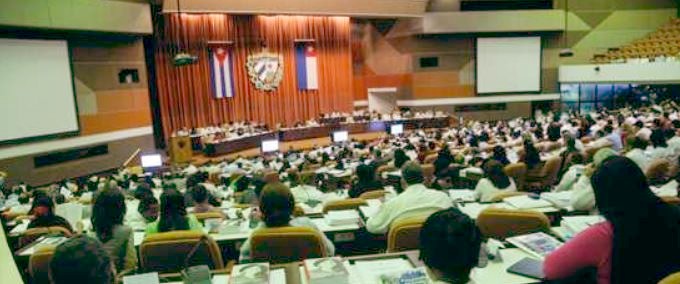
Castro: Reforms will proceed ‘at our own pace’
On Wednesday (July 15), President Raúl Castro addressed the plenum of the National Assembly of the People’s Powers. Some of the specifics of his speech follow, as translated by Progreso Weekly. The translator’s clarifications appear [in brackets].
—–
ECONOMIC GROWTH: As of June 30, the GNP had grown by 4.7 percent and we estimate that by year’s end it will stand at about 4 percent. And this is very good, taking into account that in the past year we grew only 1 percent. However, to achieve this hoped-for 4 percent, we need to work hard and with much discipline. […] there was growth in the production of the sugar and manufacturing industries, as well as construction, commerce, tourism activities and farm production […] Inflation has been contained at the foreseen levels, between 3 percent and 5 percent.
TRANSPORTATION: [There have been] difficulties in the behavior of the economy as a result of organizational deficiencies and a low technical availability in the railway system and automotive transportation, associated with the lack of replacement parts and problems in maintenance and repairs.
FOREIGN DEBT: During the first semester, we faced several external financial restrictions. However, the nation has continued to rigorously fulfill its payment obligations to foreign creditors and suppliers, a practice that favors the gradual reestablishment of the credibility of the national economy, even though the U.S. blockade continues in full force.
DUAL CURRENCY: We continue to advance in the fulfillment of the measures aimed at achieving monetary unification […] bank deposits in international currency will be guaranteed, as will be the convertible Cuban pesos (CUC) and the Cuban pesos (CUP), and the cash in the hands of the population.
URBAN COOPERATIVES: Ongoing is the experimental process of the creation of non-agricultural cooperatives, whose priorities are to consolidate the functioning of the existing ones and to continue to advance gradually in the creation of new cooperatives, without repeating the distortions that have already been identified.
SOCIETAL REFORMS: We shall continue — at our own pace — the process of transformations in Cuban society […] in the quest for the construction of a prosperous and sustainable socialism.
U.S. BLOCKADE: The Seventh Summit of the Americas, which Cuba attended for the first time […] was a propitious space for the region to reiterate its support for our people’s just struggle against the blockade and to posit the need to modify the nature of hemispheric relations in this era, when [our region] can no longer be treated as a backyard. Precisely in Panama we held a meeting with the president of the United States.
SOCIALIST UNITY: I must reiterate our solidarity with the Bolivarian Revolution [in Venezuela] and the government led by President Nicolás Maduro in the face of attempts at destabilization and any act of foreign meddling. […] We denounce the destabilization campaigns against the government of President Rafael Correa and the Citizens’ Revolution in Ecuador. […] From this parliament we send a fraternal greeting to President Dilma Rousseff and the people of Brazil.
SUPPORT FOR RUSSIA: In this very hall, we once warned that the attempt to extend NATO to the borders with Russia would pose a serious threat to international peace and security. Today, we reaffirm that the act of applying sanctions against Russia will harm Europe’s interests and bring greater instability and new dangers.
IRAN AGAINST THE WEST: We hail the agreement reached by the Islamic Republic of Iran and the group of countries that are permanent members of the [United Nations] Security Council, plus Germany. We reiterate our support for the inalienable right of every State to the peaceful use of nuclear energy.
PAPAL VISIT: We are preparing to welcome, next September, Pope Francis with the affection, respect and hospitality he deserves.
RELATIONS WITH THE U.S.: On July 20, […] diplomatic relations between Cuba and the United States will be officially reestablished, and embassies will be reopened in the respective capitals […] a new, long and complex stage will then begin on the road to the normalization of the relations, which will require the will to find solutions to the problems that have accumulated for more than five decades and affect the links between our countries and peoples. As we have said, it is a matter of founding a new type of ties between both States, different from those of our entire common history.
As stated in the Statement from the Revolutionary Government, issued on July 1, it is not possible to conceive normal relations between Cuba and the United States so long as the blockade is maintained.
While acknowledging President Obama’s call to the U.S. Congress to lift the blockade against Cuba, reiterated in his statement of July 1, we hope that he will continue to use his executive powers, that is, those that he as President can adopt without the participation of Congress, to dismantle aspects of this policy, which causes harm and privation to our people. The rest of the measures of the blockade correspond, naturally, to Parliament, i.e., his Congress.
To normalize the bilateral links it will also be necessary to return the territory illegally occupied by the Naval Base in Guantánamo; to cease the illegal radio and TV broadcasts to Cuba; to eliminate the programs aimed at provoking internal subversion and destabilization, and to compensate the Cuban people for the human and economic damage provoked as a result of the policies of the United States.
To change everything that needs to be changed is the sovereign and exclusive affair of the Cuban people. The Revolutionary Government is willing to move forward in the normalization of relations, convinced that our countries can cooperate and coexist in a civilized manner, to our mutual benefit, despite our current and future differences, thus contributing to peace, security, stability, development and equity in our continent and our world.
[To read the entire speech, in Spanish, click here.]



